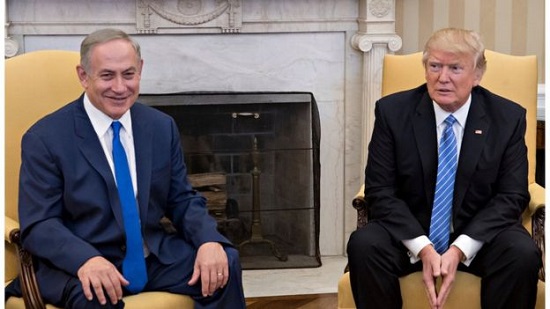President Trump has never shied away from foreign election interference -- he s professed his willingness to accept dirt from foreign countries and stayed silent when despots like Kim Jong Un criticize his political rivals.
Campaign surrogates
Trump has been the beneficiary of some previously unthinkable campaign support and he recently showed just how far he is willing to go to accept foreign help when it comes to his personal political battles.
In his latest move to demonize Democratic congresswomen of color, Trump tweeted on Thursday, "It would show great weakness if Israel allowed Rep. Omar and Rep. Tlaib to visit. They hate Israel & all Jewish people, & there is nothing that can be said or done to change their minds." Israel s deputy foreign minister then announced Israel was banning the two congresswomen from coming into the country. (The following day, Israel said it would allow Tlaib to visit her elderly grandmother in the West Bank after Tlaib requested entrance, promising to "respect any restrictions and will not promote boycotts against Israel" during her trip. Tlaib later stated she would not to go "under these oppressive conditions.")
The President has subjugated our historically bipartisan relationship with Israel to advance his immediate political agenda with little regard for the consequences this will have down the road. At the same time, Israeli Prime Minister Benjamin Netanyahu -- who is facing his own reelection challenges -- has put all of his eggs in Trump s basket. Both leaders are blinded by their own nearsighted ambitions and fail to see what s in the best interest of the people they represent.
President Trump s policy on Middle East peace (or the lack thereof) has been clear since he came into office. He s made support for Israel synonymous with support for Prime Minister Netanyahu, and has given Netanyahu carte blanche, along with some major political presents like the decision to move the US Embassy to Jerusalem and US recognition of Israeli sovereignty over the Golan Heights.
Trump and Netanyahu are, in effect, serving as each other s campaign surrogates. Trump is ostensibly fixated on winning American votes, labeling anyone who criticizes Netanyahu or Israel as anti-Semitic or anti-Israel and painting himself as the only thing between a strong US-Israel relationship and Armageddon. He uses Netanyahu s endorsements -- and now Netanyahu s willingness to do his political dirty work -- to bolster that image. Meanwhile, Netanyahu is aware of how popular Trump is in Israel, and used Trump s accolades as part of his campaign communications during his last reelection bid.
Policy shift
While Netanyahu and Trump chip away at long-established norms about not playing in other countries politics, they ve also chipped away at decades of US policy supporting a negotiated, two-state solution. By cutting off almost all financial assistance to the Palestinian Authority, closing the Palestinian Liberation Organization office in Washington, and green-lighting Israeli activities that under previous administrations were considered final status issues, both leaders have established a new normal, defined by a one-state solution -- the state of Israel led by Bibi Netanyahu.
Jared Kushner s Middle East peace plan hasn t been fully released, and is believed to stop short of calling for a fully sovereign Palestine state. While Trump cozies up to Netanyahu, he has done little to ease the suffering of the Palestinian people or to lay the groundwork for discussions that will ameliorate security risks facing Israel, including from Gaza.
Discussions about what is in the Israelis and Palestinians interest long term have taken a backseat to Trump and Netanyahu s political agendas. A failure to make progress on strategic security issues related to Middle East peace will leave Israeli security worse off going forward, especially if Trump and Netanyahu make policy moves that gin up support from their base but provoke retaliatory measures.
Shared shortsightedness
Netanyahu is in a neck-and-neck race with his closest rival heading into a September 17 election, and he seems willing to do whatever it takes to win, including serving as President Trump s political prop. Our security relationship with Israel is bigger than any one leader, and Trump probably hasn t thought about what happens if Netanyahu loses the election and he has to spend time repairing relations (which is unlikely for Trump) with the next Israeli prime minister.
Plus, any leader who wants to manipulate Trump and American foreign policy at this point is probably aware that slamming Democrats -- or barring them in some way -- is a surefire way to get President Trump to do what they want. It s an easy manipulation point for anyone looking to play the President on serious policy issues.
In the short term, Trump and Netanyahu s involvement in barring Tlaib and Omar from Israel may play to their respective bases. In the long term, however, both men do not have the best interest of their nations citizens in mind. President Trump made our relationship with Israel about politics and his personal vendettas. Netanyahu messaged that he s both shortsighted and for sale.
Israel faces very real security threats like terrorism and Iran, and previous US Presidents -- both Republicans and Democrats -- have helped address them. But by holding our bilateral relationship hostage to their personal politics, Trump and Netanyahu are hamstringing the ability to cooperate as deeply down the road while signaling -- globally -- that politics trumps policy.



